Taiwan Tech students win a double award for Eco-Friendly Wave Blocks with recycled materials and oyster shells
In 2024, the Department of Design of Taiwan Tech has once again achieved great results at the Golden Pin Design Award. Among them, seniors Chia-Ying Chiang and Shao-Yu Lin's final project “Ecotrapod: A New Solution to Wave Dissipation” stood out, earning them the dual honors of “Best Design of the Year” and “Special Award for Circular Design” in the Industry-Academia Collaboration category. This achievement showcases Taiwan Tech's outstanding performance in environmental sustainability and innovative design.
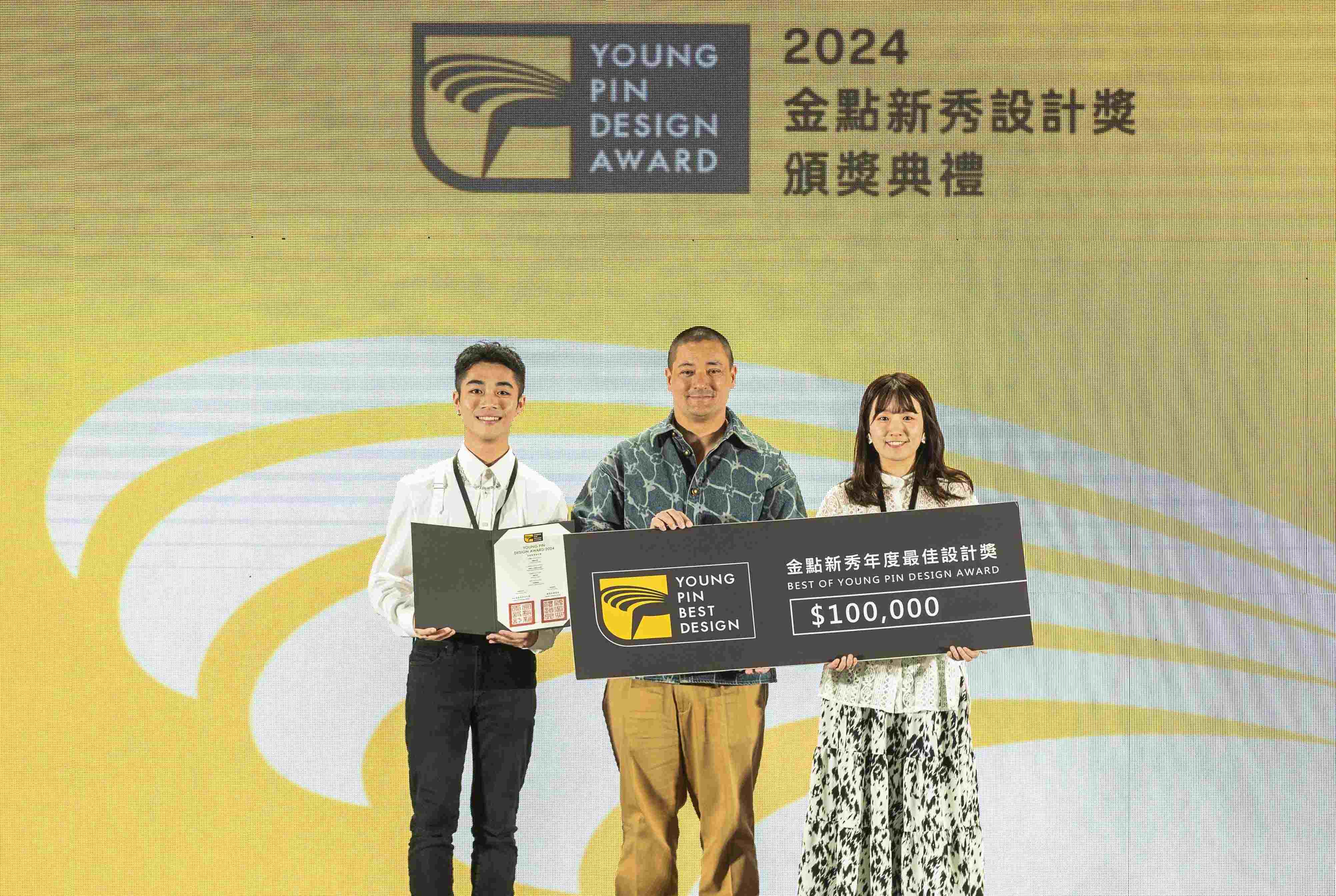
At Taiwan Tech, Chia-Ying Chiang (first from left) and Shao-Yu Lin (first from right) won dual honors for their work “Ecotrapod: A New Solution to Wave Dissipation” in the Industry-Academia Collaboration category at the Golden Pin Design Award, receiving both the “Best Design of the Year” and “Special Award for Circular Design”.
The “Ecotrapod: A New Solution to Wave Dissipation” focuses on sustainable ocean and waste recycling. Collaborating with C-Cube, Lotos, and Everplast, the project utilizes C-Slurry recycled slurry and discarded oyster shells as base materials, aiming to create a new wave dissipation product that can replace or reduce the use of cement. Chia-Ying Chiang and Shao-Yu Lin highlight that beyond materials, the structural design employs biomimetic principles with bio-porous spiral surfaces, achieving the highest structural strength with minimal material use to reduce resource waste. The designed holes in the wave-dissipating blocks also facilitate algae attachment and provide habitats for fish and shellfish, allowing the public to observe marine ecology in the intertidal zone. This initiative constructs a platform for interactive understanding between humans and the ocean, eliminating the perceived distance from the marine environment.
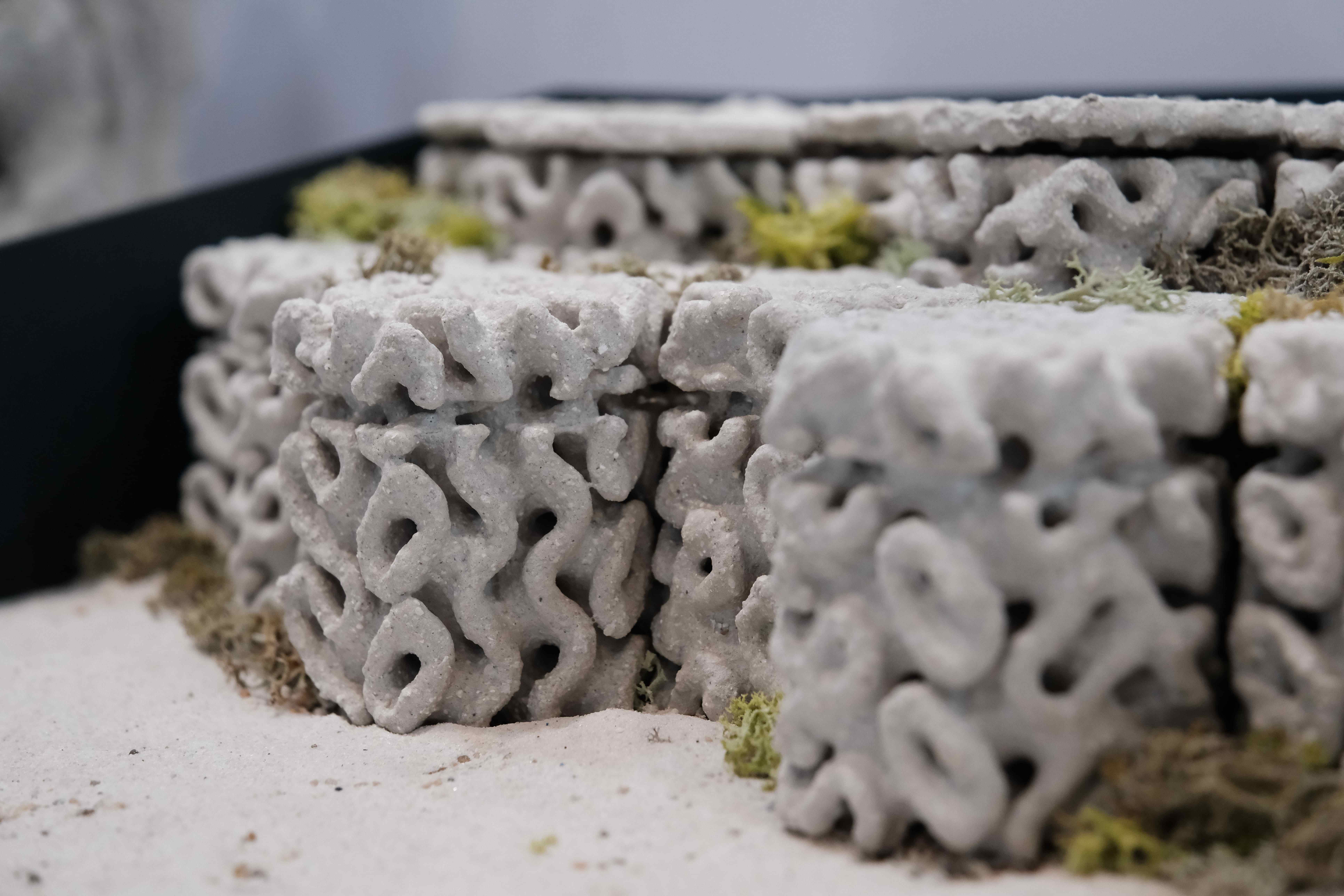
The “Ecotrapod: A New Solution to Wave Dissipation” achieves Sustainable Development Goals (SDGs) through scientific principles and 3D printing, minimizing material usage while ensuring structural strength. It is lighter than traditional wave-dissipating blocks, contributing to carbon reduction and enhancing the value of marine waste (oyster shells).
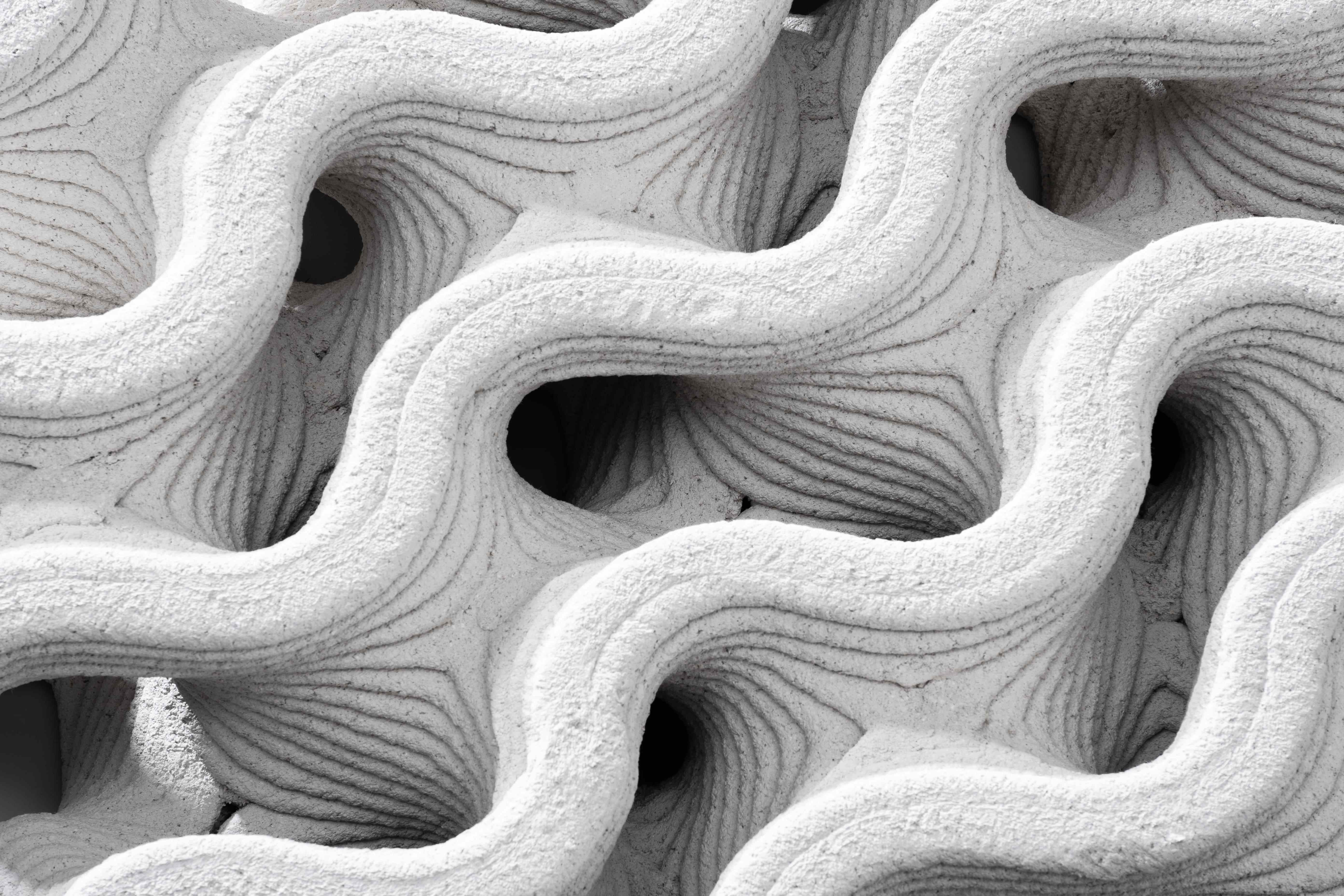
The exterior design adopts a high-strength structure with bio-porous spiral surfaces, providing habitats for coastal organisms.
Chia-Ying Chiang and Shao-Yu Lin have a deep affinity and love for the ocean. They aim to achieve sustainable ecological cycles through their designs. After thorough research, they discovered that wave-dissipating blocks made from C-Slurry recycled slurry and discarded oyster shells are better than those made of cement. The wave-dissipating block has a 50% smaller carbon footprint compared to cement blocks. Precise material savings through 3D printing can further reduce material usage by over 40%. Even when the product is no longer needed, it can be recycled completely—crushed and remade into new materials—fulfilling their vision of 100% recycling and reuse, aligning perfectly with their sustainable principles.
Winning the award was an unexpected achievement for Chia-Ying Chiang and Shao-Yu Lin. They noted that through this industry-academia collaboration, they gained a deeper understanding of the current development trends in the industry. C-Cube, their collaborating partner, mentioned that there is still room for increasing awareness and acceptance of circular materials in Taiwan. Concerns and doubts among the public about using these materials as building materials to replace cement still exist, especially in environments where long-term human habitation is a consideration. In addition to redesigning wave-dissipating blocks with creativity, Chia-Ying Chiang and Shao-Yu Lin also created ecological bricks for constructing fish ponds, earning them a spot on the Shortlist300 for the German iF Student Award. They hope to make circular materials a bridge for coexistence between humans and ecological prosperity, integrating them into people's lives in the future.
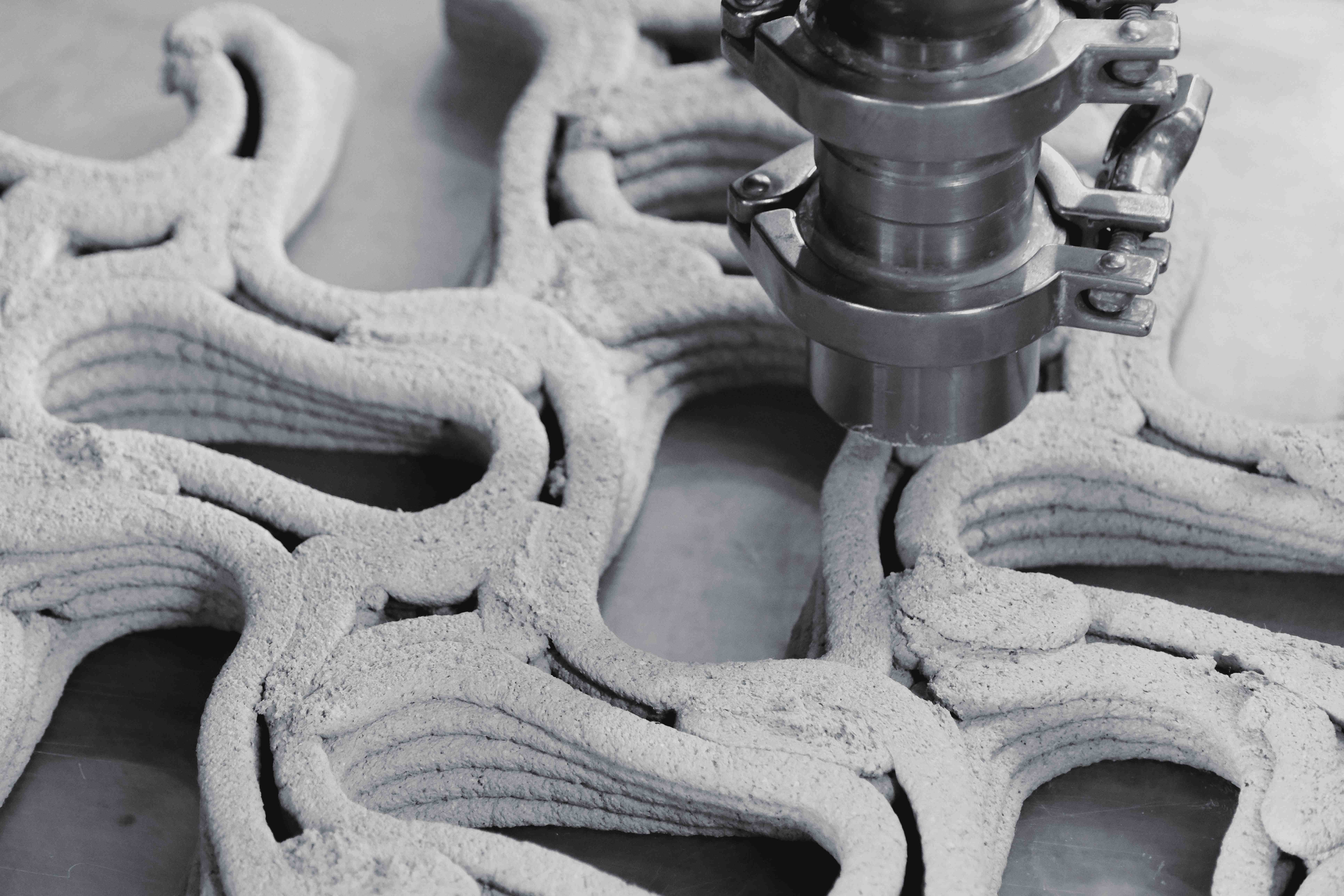
The “Ecotrapod: A New Solution to Wave Dissipation” is produced using 3D printing technology, minimizing material and resource waste.
In response to the rapid advancements in AI, Chia-Ying Chiang and Shao-Yu Lin believe that instead of fearing replacement by AI, it's more important to learn how to use the soft power of AI. AI can offer diverse research or design perspectives and significantly save time in data collection and organization, allowing them more space for insight and reflection.
Hong Zheng, one of the mentors for “Ecotrapod: A New Solution to Wave Dissipation” and a project lecturer at the Department of Design of Taiwan Tech, mentioned that in guiding graduation projects, teachers don't directly give specific directions but rather pose topics to prompt students to think critically and solve problems. He emphasized the importance of long-term guidance with minimal interference, fostering students' ability to think diversely. He also hopes students can learn solid theoretical research foundations and design concepts, implementing each project comprehensively and gaining public acceptance.
Furthermore, the AZZI tent designed by Yu-Hsuan Zhang from the Department of Design features a freely expandable or compressible space to protect contents, with a wide opening for easy access. Its metal frame, fasteners, and drawstrings make the bag tall and straight, showing a strong and neat appearance. This work also won the “Golden Pin Design Award - Sponsor Special Award” and showcased outstanding performance in creativity, technology, and practicality by design students at Taiwan Tech. Taiwan Tech will continue to deepen industry-academia collaborations to cultivate well-rounded design talents, contributing jointly to innovative design and environmental sustainability efforts.
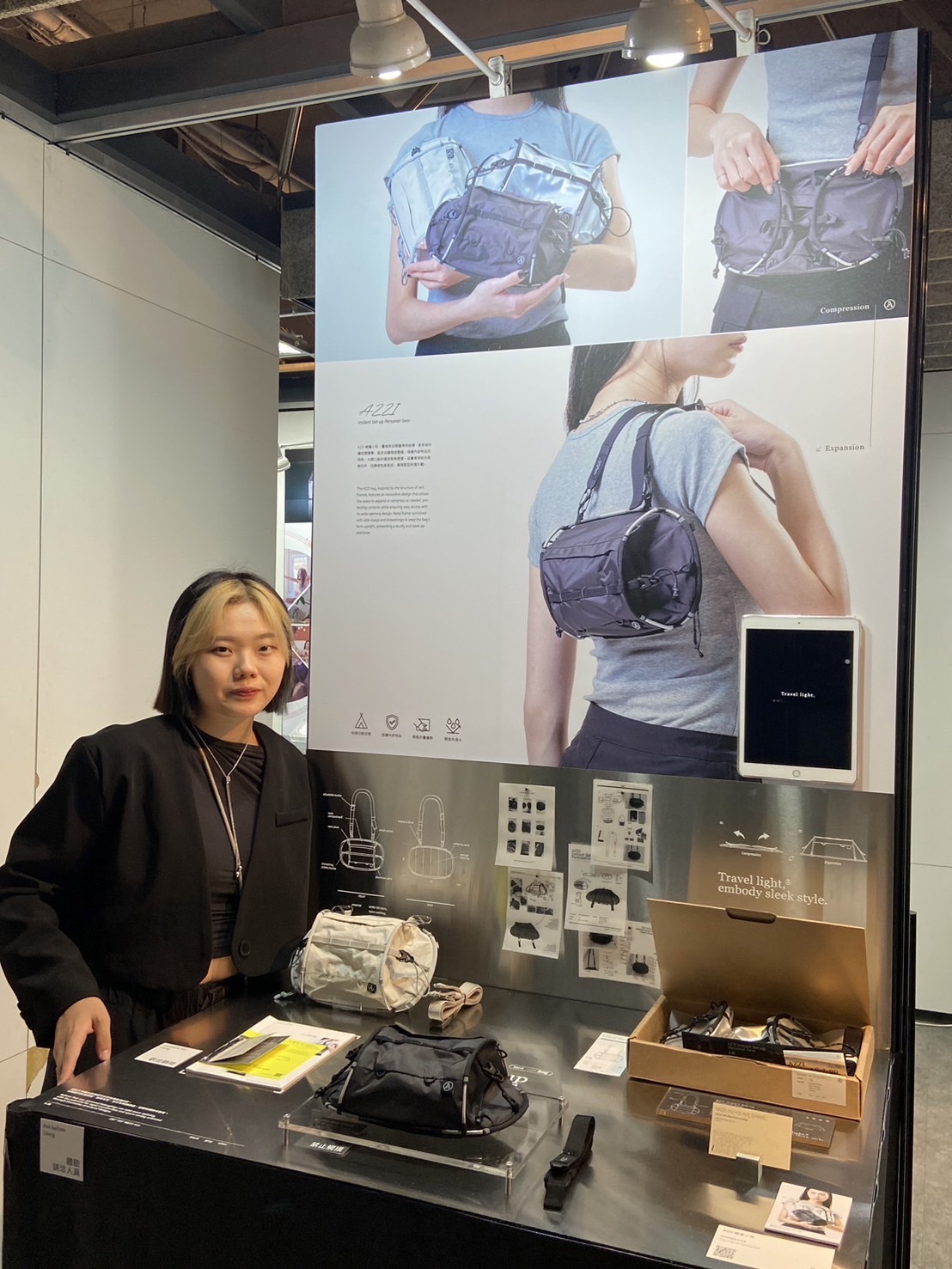
The AZZI tent-inspired bag features a framework that allows for flexible expansion or compression of space, ensuring both protection of contents and easy access through its large opening design. The metal frame, fasteners, and drawstrings make the bag tall and straight, giving it a solid and neat appearance.
